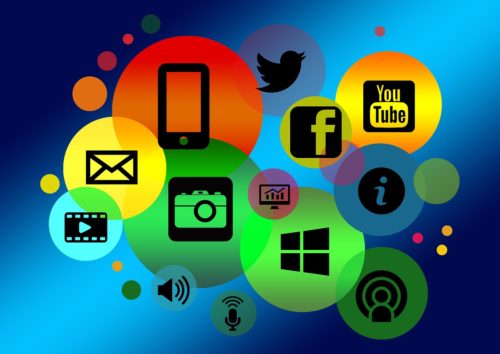TWH –A planned Dec. 14 vote by federal communication commissioners is expected to result in net neutrality being eliminated as the rule governing internet service providers. Instead, access to online services would be governed by a much weaker set of rules, based on expecting corporate executives to stick to their published policies rather than requiring an even playing field.
This change would negatively impact any Heathen, Pagan, or polytheist attempting to use the internet to interact with their co-religionists, whether it’s for the sharing ideas or engaging in commerce.

[pixabay]
Net neutrality became the rule in 2015, when FCC commissioners declared the internet a utility, similar to electricity or water, and began regulating it as such. This concept puts executives for companies such as Comcast or Verizon in an awkward position, because the streaming of video has significantly undermined the cable television subscribers upon which they depend.
Supporters of net neutrality maintain that the rule keeps cable giant Comcast, for example, from slowing down the Netflix stream to a pixelated crawl to make its cable channels more attractive, or from demanding high fees which would cause the cost of the movie streaming service to skyrocket.
Opponents claim that the rule punishes the people who invested to create the internet, and who are now refusing to invest more in its development. At the same time, executives from companies such as Google disagree with the assertion that net neutrality stifles innovation.
What Ajit Pai, chair of the Federal Communications Commission (FCC), wants instead is to wash his hands of the problem entirely. This is an interstate commerce issue, he says, and should be regulated by the Federal Trade Commission (FTC). This would represent a sea change, because while the FCC is a rule-making body, the FTC is not.
Pai wants company policies to be fully transparent to the FTC. This means that, if a Verizon policy is to throttle back Etsy shops unless their owners pay $20 a month, all the the FTC could do is to make sure that they are indeed charging $20 per month, and not more or less.
Exactly what policies would result is unknown, but most experts are currently assuming that it would be some kind of pay-to-play scenario. That is a quite reasonable assumption given the history.
Supporters of net neutrality believe that the change would disproportionately impact members of marginalized social groups, as well as making it a lot harder for a couple of college students, let’s say, to put together a service as popular as Facebook.
Members of alternative religions, such as the many people who read The Wild Hunt, would likely fall into at least one of those categories. With access determined by dollars, Pagans and others could easily find themselves in silos, unable to easily connect with like-minded people. The content of the internet would, under worst-case scenarios, be largely controlled by a small number of people with very deep pockets.
The barriers to entry into the internet world of community, entrepreneurship, or education would suddenly grow significantly. Scaling those barriers, for many people, would change from a small manageable hop to a significant, seemingly impossible feat of strength. Load times could be much longer from sites if the owners don’t pay for their data to get onto the internet fast lane, for example.
While an internet on which it’s difficult to find blogs, shops, and news sites like The Wild Hunt that support Pagans and polytheists is not guaranteed, the potential is a big one, and it’s also not unrealistic.
While the Republican majority of the FCC is expected to pass this rule change, commenting is still an option. Visit this link, and click on “new filing” to upload a comment document, or “express” to simply share some thoughts directly.
Perhaps even more important is contacting members of Congress, and asking them to support legislation to put the regulation of the internet as a utility squarely on the shoulders of FCC members. This fight is already years old, and how much longer it will take to settle the issue ultimately depends on voters, and who they send to Washington.
The Wild Hunt is not responsible for links to external content.
To join a conversation on this post:
Visit our The Wild Hunt subreddit! Point your favorite browser to https://www.reddit.com/r/The_Wild_Hunt_News/, then click “JOIN”. Make sure to click the bell, too, to be notified of new articles posted to our subreddit.